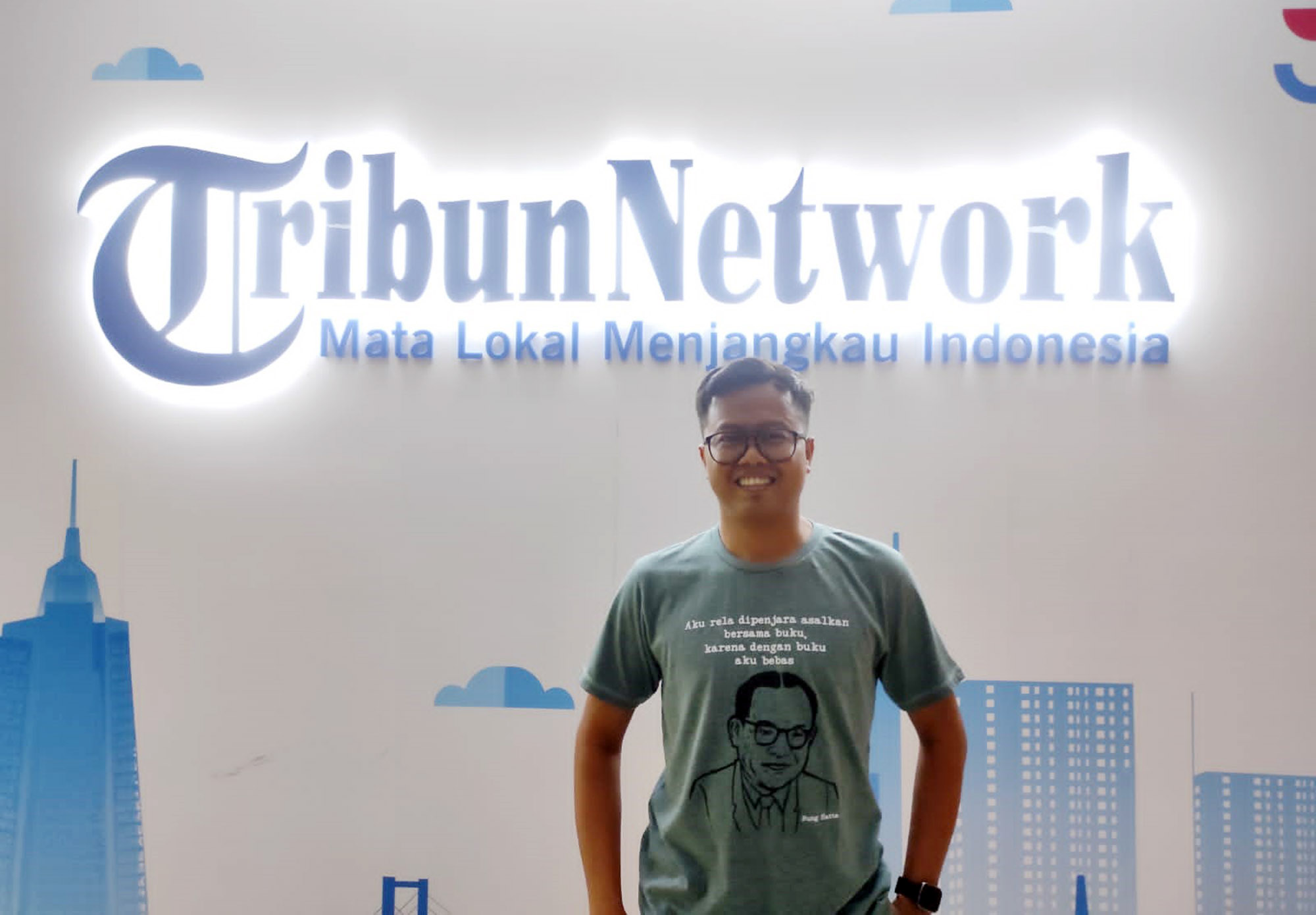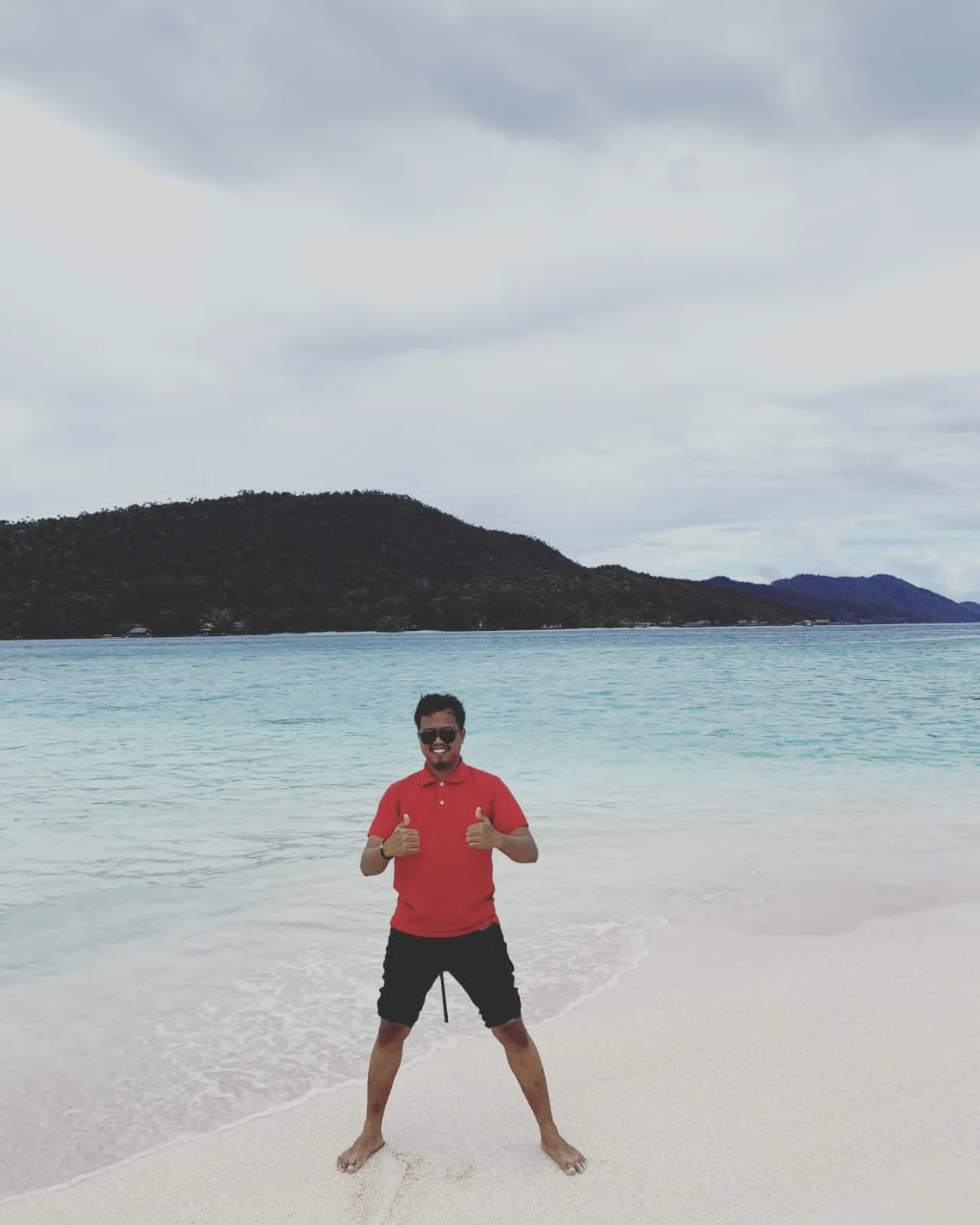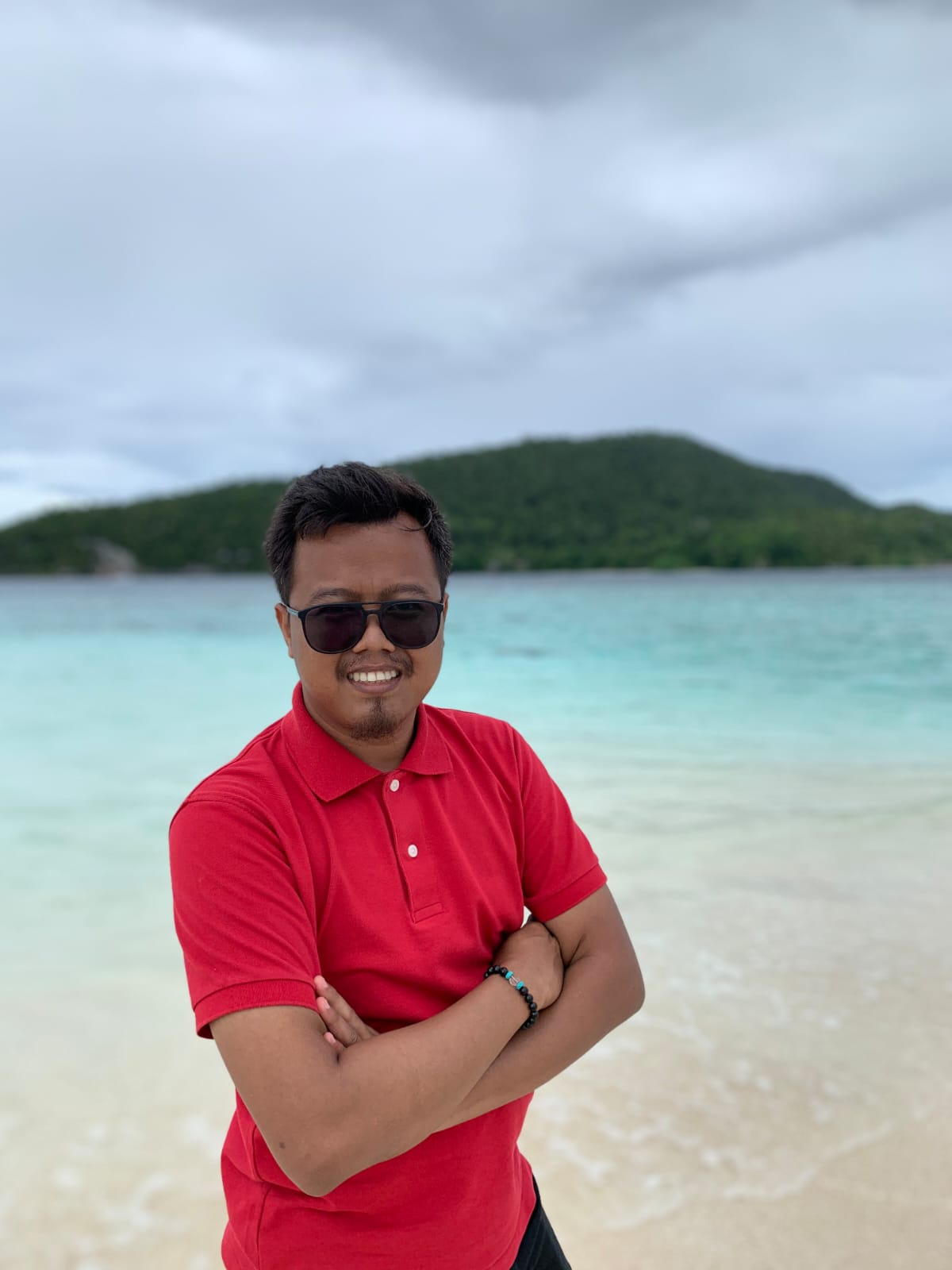Journalist Independence in the Year of Politics: Jefri Susetio #4

Facing the 2024 Election in Indonesia, Jefri reminded that the attitude and idealism of all journalists is clear, namely that they are independent from political interests so that the work they produce is objective. Journalists are not part of the political process, not part of the political game. Journalists must be referees, reporting reports objectively.
Press organizations, such as AJI and PWI have regulated bans on journalists from engaging in practical politics in the code of conduct. Journalists must resign permanently if they run for DPRD, DPR, regional heads, campaign teams or KPU or Bawaslu commissioners.
The Press Council and the journalists' organizations that are registered with the Press Council, must act as a counterweight, to control media companies controlled by party officials.
Journalists work for the public interest and maintain neutrality in reporting. That is, the news written is accurate, balanced and has no bad intentions.
The development of social media also supports media work. Jefri uses social media to share news so that he gets more readers. The company's high social media following is beneficial for making the news go viral and get lots of readers. Then, it became the talk of netizens.
At the end of the conversation, Jefri also mentioned the development of the Malikussaleh University campus. After graduating in 2013, he never stepped on the Unimal campus.
"However, I think the literacy climate on campus must be improved. The library should be managed by a librarian, not an outcast. The books must be complete, at least providing the books students need.”
The accreditation of majors and universities must be improved, so that graduates are not hindered from working in certain companies. And, the campus encourages student creativity.
Facilities and utilities for students must be complete so that students can develop themselves. Campus management must be better than previous years.
Then, religious moderation in the campus environment must be increased so that religious conservatism is not high. Students should be encouraged to become experts with the knowledge they are involved in, not to compete in becoming religious figures.
In addition, campus officials are expected to be free from corruption and nepotism when selecting teachers on campus. That is, everyone is given the same opportunity to become a teacher. So teachers and campus bureaucrats are not nepotism because of relatives and friends.
As an alumni, he hopes that the rectorate will not mismanage the campus, but work for the interests of students.
He reminded students to be honest, have integrity, and always be enthusiastic about pursuing the field they are involved in. Smart, high GPA is not the main determining factor for success in the world of work.
According to him, the profession of a middle-class journalist is similar to that of a lecturer. The choice is for the journalist to take a career path such as becoming a manager or editor-in-chief in a media company or a professional path, for example teaching as a lecturer, writer, cultural observer, etc.
He acknowledged that many courses were implemented as enrichment of thinking when covering politics. For example, the Indonesian Political System course. Then, human rights courses and political change and political economy, although they are not directly related to the work of journalists in the field. This course is a provision for understanding when covering political issues in Pemko, DPR, and political parties.
Jefri remembers that there are several subjects such as political philosophy that he likes. From political philosophy he learned a lot from thinkers
influential political philosophers such as Plato, Aristotle, Karl Marx etc. From the thoughts of these philosophers he came to have an understanding of the history of political thought and contemporary theories today.
He also likes political sociology and political economy, especially political economy to see government policies that regulate people's needs in the economic field.
Some of Jefri's favorite lecturers include Mr. Taufik Abdullah, Mr. Naidi Faisal, Mr. Al Chaidar, Mr. Mirza Alfath, Mr. Akhyar Nasution, Mr. Amiruddin Kataren, Mr. Agung Utama Lubis, and Mrs. Cut Sukmawati.
"In the past, I often borrowed Mrs. Cut Sukmawati's books. So, Mrs. Cut, she always gives a deadline, for example three days, for the books to be returned and then the books can be borrowed again. So, from here I learned the discipline to read every day.”
He once lived with Akhyar Nasution, Amiruddin Kataren, and Agung Utama Lubis. "They are great lecturers who encourage students to develop," said Jefri.[]

Indenpendensi Jurnalis di Tahun Politik
Menghadapi Pemilu 2024, Jefri mengingatkan sikap dan idealis seluruh wartawan sudah jelas, yakni independen dari kepentingan politik sehingga karya yang dihasilkan objektif. Wartawan bukanlah bagian dari proses politik, bukan bagian dari permainan politik. Wartawan harus jadi wasit, melaporkan liputan-liputan secara objektif.
Organisasi pers, seperti AJI dan PWI sudah mengatur larangan wartawan untuk tidak berpolitik praktis dalam kode perilaku. Wartawan harus mundur permanen jika mencalonkan diri sebagai anggota DPRD, DPR, kepala daerah, tim sukses maupun komisioner KPU atau Bawaslu.
Dewan Pers dan organisasi jurnalis yang terdaftar di Dewan Pers, harus menjadi penyeimbang, menjadi kontrol bagi perusahaan media yang dikuasai pengurus partai.
Wartawan bekerja untuk kepentingan publik dan menjaga netralitas dalam pemberitaan. Artinya, berita yang ditulis akurat, berimbang dan tidak beretikad buruk.
Perkembangan media sosial juga ikut mendukung kerja media. Jefri memanfaatkan media sosial untuk membagi berita agar pembacanya lebih banyak. Pengikut media sosial perusahaan yang tinggi bermanfaat untuk membuat berita-berita jadi viral dan banyak pembaca. Lalu, menjadi perbincangan netizen.
Di akhir perbincangan, Jefri juga menyinggun perkembangan kampus Universitas Malikussaleh. Setelah wisuda pada 2013, ia tidak pernah menginjak kampus Unimal.
“Tapi, saya rasa iklim literasi di kampus harus ditingkatkan. Perpustakaan harus dikelola seorang pustakawan, bukan orang buangan. Buku-buku harus lengkap, setidaknya menyediakan buku yang dibutuhkan mahasiswa.”
Akreditasi jurusan maupun universitas harus ditingkatkan, sehingga lulusannya tidak terhalang bekerja di perusahaan tertentu. Dan, kampus mendorong kreativitas mahasiswa.
Fasilitas dan utilitas untuk mahasiswa harus lengkap agar mahasiswa bisa mengembangkan diri. Penataan kampus harus lebih baik dari tahun-tahun sebelumnya.
Lalu, moderasi beragama di lingkungan kampus harus ditingkatkan supaya membendung konservatis agama tidak tinggi. Mahasiswa harus didorong jadi pakar dengan ilmu pengetahuan yang digeluti bukan berlomba lomba menjadi agamawan.
Selain itu, pejabat kampus diharapkan tidak korupsi dan tidak nepotisme saat seleksi pengajar di kampus. Artinya, semua orang diberi kesempatan yang sama menjadi pengajar. Jadi pengajar maupun birokrat kampus tidak nepotisme karena saudara dan kerabat.
Sebagai alumni, ia berharap rektorat tidak salah mengurus kampus, tapi bekerja untuk kepentingan mahasiswa.
Ia mengingatkan mahasiswa harus jujur, berintegritas, dan selalu semangat menekuni bidang yang digeluti. Pintar, IPK tinggi tidak menjadi faktor penentu utama untuk sukses di dunia kerja.
Menurutnya, profesi wartawan ini kelas menengah serupa dengan dosen. Pilihannya ada di wartawannya ingin mengambil jalur karier seperti jadi manajer atau pemimpin redaksi di perusahaan media atau jalur profesional misalnya nyambi mengajar sebagai dosen, penulis, budayawan dll.
Ia mengakui banyak mata kuliah yang terimplementasikan sebagai pengayaan berpikir saat meliput politik. Misalnya saja, mata kuliah Sistem Politik Indonesia. Lalu, mata kuliah HAM dan perubahan politik serta ekonomi politik, meskipun tidak terkait langsung dengan kerja-kerja jurnalis di lapangan. Mata kuliah ini menjadi bekal pemahaman saat meliput isu-isu politik di Pemko, DPR, dan partai politik.
Jefri mengingat, ada beberapa mata kuliah seperti filsafat politik yang ia sukai. Dari filsafat politik ia belajar banyak dari pemikir-pemikir
filsuf politik yang berpengaruh seperti Plato, Aritoteles, Karl Marx dll. Dari pemikiran para filsuf itu ia jadi punya pemahaman tentang sejarah pemikiran politik dan teori-teori kontemporer saat ini.
Ia juga suka sosiologi politik dan ekonomi politik, khususnya ekonomi politik untuk melihat kebijakan pemerintah yang mengatur hajat orang banyak pada bidang ekonomi.
Beberapa dosen favorit Jefri seperti Pak Taufik Abdullah, Pak Naidi Faisal, Pak Al Chaidar, Pak Mirza Alfath, Pak Akhyar Nasution, Pak Amiruddin Kataren, Pak Agung Utama Lubis, dan Ibu Cut Sukmawati.
“Dulu, saya sering pinjam buku Bu Cut Sukmawati. Jadi, Bu Cut, selalu memberikan tenggat waktu, misalnya tiga hari, untuk dipulangkan buku lalu buku itu bisa dipinjam kembali. Nah, dari sini saya belajar disiplin untuk membaca setiap hari.”
Ia pernah tinggal bersama Akhyar Nasution, Amiruddin Kataren, dan Agung Utama Lubis. “Mereka dosen-dosen hebat yang mendorong mahasiswa untuk berkembang,” puji Jefri.[]
